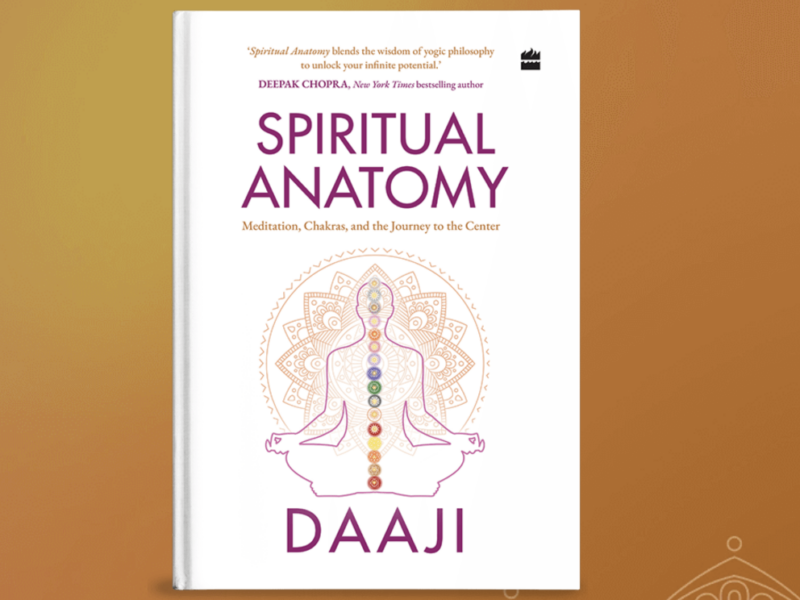Neal Goyal was riding on a wave of success after starting his own hedge fund at 24—until his lies caused investors to lose $10 million. Now in prison, he explains how the Purusharthas, or the four aims of life, are helping him make sense of his crime.
Imagine this: Everything is going as planned. You’ve found your life’s purpose, or your dharma, and you start working toward a goal that gives you both internal and external fulfillment. You know your purpose, and you’re taking steps to fulfill your mission.
This was me about five years ago.
Before I came to prison.
So, how did I end up in prison?
From Dharma to Deceit
I grew up in an Indian family, where principles of modesty, humility, and honesty were at the forefront of every decision made. In my teenage years, I fell in love with the stock market; I was intrigued by its complexity. At that time, it wasn’t about becoming wealthy, but pursuing a path I was truly passionate about. Which is how, at age 24, I launched my own hedge fund. I knew my life’s purpose. It was to apply my interests and talents to help others achieve financial security.
After I opened the doors of my firm, things began to change. I found myself focusing more on my growing fund and the potential riches that would follow. My mindset shifted beyond my original purpose, and I morphed into a self-centered perfectionist with an ego-driven attitude. When my firm generated its first-ever quarterly loss, I considered it a complete failure. While the loss was minimal, my first instinct was to protect my ego. I believed I would squander my status as a whiz-kid and lose respect in the eyes of those who believed in me. And while that was likely untrue, I did the unthinkable: I manipulated the results I reported to investors by covering up that loss.
I believed I would rectify the problem in future periods, but the reality was an ensuing period of deceit, where I forged one lie after another. Eventually, investors lost $10 million because of my dishonesty.
In prison, I reconnected with my soul’s purpose
I will forever carry guilt for my actions. After I was incarcerated, this guilt weighed on me to the point where I felt paralyzed by depression, self-directed anger, and a feeling of being lost. I knew that I needed to reevaluate every aspect of my life, and reconnect with my soul’s purpose.
I picked up a couple modern interpretations of the Bhagavad Gita, and I found tremendous value in yoga philosophies that helped achieve inner peace and satisfaction with oneself. I wanted so badly to become at peace with my past actions so I could move forward in my path of redemption, atone for my actions, and make amends with those I affected. I wanted to feel inner harmony, comfort in my own skin, and have confidence in my ability to pursue a positive life trajectory.
In studying these Gita translations and reading yoga philosophy, I learned how simple it was to give my life a reset.
How the Purusharthas Helped Me Find Inner Harmony
While I still have a long road ahead in my desire for reconciliation, I have found basic yoga philosophy to be highly valuable in guiding the balance I seek in my life. Here’s how the Purusharthas, or the four aims of life, helped me make sense of my crime—and work toward attaining more balance in my life.
1. Dharma. Dharma refers to your purpose in life. It’s how you sustain your life in a positive fashion, providing peace for your family and being a contributor to society. Our lives possess multiple layers of dharma, where we identify a defined purpose for everything we do.
After I committed my crime, I felt as if I had lost my purpose. I began to focus only on protecting my own ego and hiding from failure. By losing focus on my life’s purpose, I veered so far away from my original goals that they no longer felt achievable. During this time in prison, I have learned that my life’s purpose has become about giving back to society, being a supportive husband, and a role model to my three young children. My dharma has also become about correcting my wrongs, and navigating a path that eventually leads to making amends with those I affected.
2. Artha. Artha refers to the material comfort you need to support your life’s mission. This comes in the form of material possessions and knowledge needed to carry out our dharma. Thinking back to my life before prison, I can see that as each year went by I became greedier, chasing everything I could not have. I was highly ambitious and achieved lofty goals I set for myself. But instead of satisfaction in attaining those goals, I just wanted more. My desire for endless riches, fancy cars, and a fat wallet saw no end.
Now that I have lost every single material possession I once had, I realize how truly little we need to be comfortable. Ultimately, my Artha has been redefined to the basic necessities I need to take care of my family, and carry out my life’s purpose.
3. Kama. Kama refers to the desire for pleasure. Human behavior is often driven by Kama, which is not necessarily a bad thing. After all, everyone wants to enjoy the pleasures in life, no matter what form they take. However, too much Kama can lead to overindulgence, greed, and addiction.
Fueled by my growing ego, I became addicted to money. Instead of seeing a humble person in the mirror like I did during my childhood, I envisioned dollar signs that would buy me the image I wanted to see. Everything in my life was an overindulgence. There was no limit to what I wanted, and my desires were out of control. Now, having realized that greed was the source of my reckless behavior, I have reset my definition of Kama. Yes, I will always want to enjoy life’s pleasures and give my family the opportunity to enjoy them, too. But in doing so, I need to be mindful—and continually redefine the meaning of this pleasure.
4. Moksha. Moksha refers to a form of liberation that results from living a dharmic life. It is what offers you the deepest sense of your own inner freedom. Moksha’s reference to “freedom” has a much more literal interpretation for me, given where I am right now. While I have been incarcerated for three years—and have three more to go—the reality is that my mind had been trapped for many years before that in a self-imposed prison created by my web of dishonesty. As a result, no matter how many other great things were happening in my life, like starting my beautiful family, I was still haunted by the unethical hole I’d dug myself into.
Now, despite my current confinement, I have identified my dharma and know the new purpose of my life. I see that I am on a path to Moksha—a true inner freedom achieved by my soul’s fulfillment.
I have an incredibly long way to go in giving back to society all that I have taken. While there was a period in my life that led me far off course, these yogic concepts have helped me understand that in order to achieve inner peace, I need to embrace and understand my life’s purpose.
When I’m released from prison, I know I will be faced with a world of uncertainty. However, I know that as long as I abide by the principles of my own dharma and maintain life balance as prescribed by the Purusharthas, I will be able to navigate the unknowns that lie on my path ahead.







